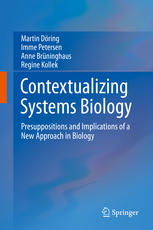

Most ebook files are in PDF format, so you can easily read them using various software such as Foxit Reader or directly on the Google Chrome browser.
Some ebook files are released by publishers in other formats such as .awz, .mobi, .epub, .fb2, etc. You may need to install specific software to read these formats on mobile/PC, such as Calibre.
Please read the tutorial at this link: https://ebookbell.com/faq
We offer FREE conversion to the popular formats you request; however, this may take some time. Therefore, right after payment, please email us, and we will try to provide the service as quickly as possible.
For some exceptional file formats or broken links (if any), please refrain from opening any disputes. Instead, email us first, and we will try to assist within a maximum of 6 hours.
EbookBell Team

5.0
18 reviewsThis collective monograph aims at contributing to an improved understanding of the epistemic presumptions, sociocultural implications and historically backgrounds of the newly emerging and currently expanding approach of systems biology. In doing so, it offers empirically grounded, valuable and reflexive information about a paradigmatic shift in the biosciences for a wide range of scientists working in the interdisciplinary areas of systems biology, synthetic biology, molecular biology, biology, the philosophy of science, the sociology of science and scientific knowledge, science and technology studies, technology assessment and the like. The authors of this monograph share the theoretical methodological premise that science is a culturally and socially embedded practice which characterizes our culture as a scientific one and at the same time draws its innovative potential from its socio-cultural context. This dialectic relationship lies at the heart of the current development of systems biology which is conceived as a so-called successor of ‘-omics’ research and triggered by high-throughput information technologies. At the same time a need for a holistic conceptualization of complex biological processes emerges. The title Contextualizing Systems Biology suggests that this book analyzes the development and advent of systems biology from different theoretical and methodological perspectives. We investigate a variety of contexts ranging from the analysis of cognitive contexts (such as basic theoretical concepts) to regulative contexts (policies) to the concrete application of a systems biology in the socio-scientific context of a European research project. In empirically analyzing these different and interrelated layers and dimensions of systems biology, the scope of the book goes beyond present attempts to investigate the advent of new approaches in the biological sciences as it frames and assesses systems biology from an interdisciplinary and integrated perspective.